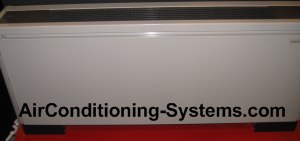HVAC Softwares are needed to design simple and complicated air conditioning systems. There are many areas of design that engineers have to consider when designing parts that constitute a complete working unit. Mechanical engineers will focus on the mechanical design aspect of the unit ranging from plastic parts design to metal that house the unit.
Systems engineers will probably look into the load calculation and duct design aspect of the site where the air conditioner system is supposed to be installed. Test engineers will simulate and do actual capacity testing in the test labs specifically designed for testing purposes.
Electronic engineers will look into the design of the printed circuit board that controls the operations of the HVAC equipment. Electronic design itself is a huge task henc many big companies have dedicated electronic division that design and develop these controllers. Smaller companies may just purchase the electronic control boards from controls companies that sell these controller board.
Creo Elements/Pro Software from PTC
Creo Elements/Pro design software was previously known as Pro/Engineer. This industry standard software is suitable for high-end and complex 3D product design. The integrated parametric design enables you to come out with better product at a shorter cycle time.
This sofware can be used to design a complete air conditioner equipment from scratch. For example, if you are designing a window or room air conditioner, you will need to design the outlook of the unit follow by the detailed dimensioning of the parts. Assembly diagrams in 3D is easily designed. Once design has been completed, the files can be exported to other mould design software to design the mould before tooling is done.
This software can be downloaded for free trial of 30 days from the PTC website.
AUTOCAD Software from AUTODESK
A less costly 2D/3D software but with lesser feature is AutoCAD from Autodesk. If you are using the software for 2D purposes, the AutoCAD LT will do. It can be used to draw 2D drawings such as screws, sticker design, logo design, parts design and can be saved in DWG format for interfacing with other softwares.
If you are into 3D design, you can settle for Inventor software. Capability such as visualization and simulation of your products can be done before they are built. This helps to reduce the error before the actual prototypes of the products are made.

Wrightsoft HVAC Softwares
Wrightsoft has quite a number of HVAC softwares that you can try. It has graphical user-friendly softwares that can do load calculations for residential as well as for commercial applications. Duct calculations with parameters such as CFM, load and pressure drop can also be determined.
It can also read plan design from other autocad softwares and used as the data for further design and simulation. Bill of Materials can also be generated. Whether supplementary heating is needed can also be simulated here.
As with any standard industry practise today, you can download the trial version before deciding whether to purchase it.
Printed Circuit Board Design
If you are an electronic engineer who specialized in circuit design, there are many schematic entry and printed circuit board design softwares that you can try. EAGLE software from CadSoftUSA has most of the basic tools needed to do both schematic and PCB design. You can download the freeware version to try out.










